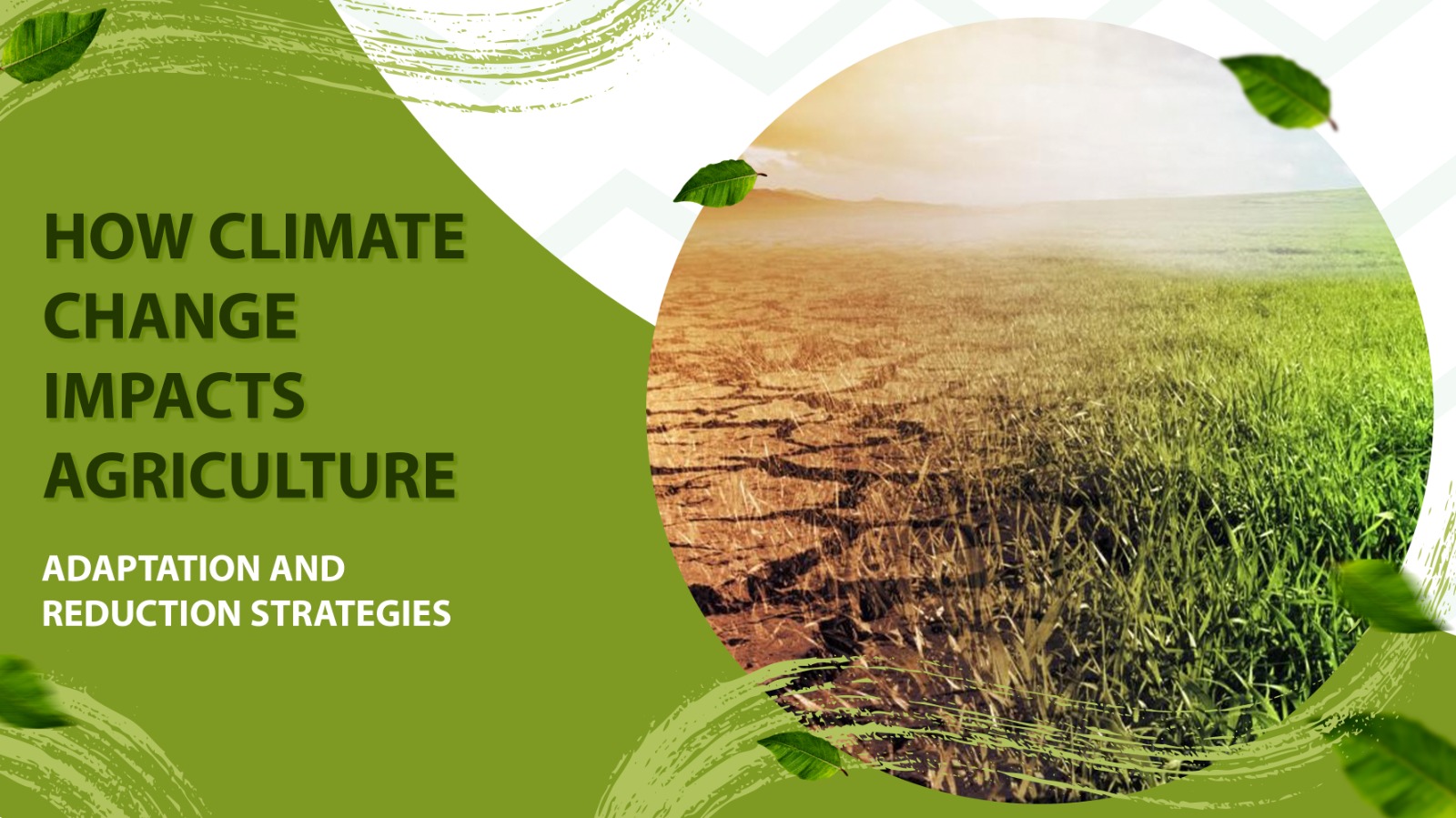As there is a rapid change in global climate, we can witness its effects on various sectors, agriculture being at the forefront. Farmers are dealing with changing weather patterns, extreme events, and rising temperatures. This blog delves into the ways in which climate change affects agriculture, as well as strategies for adaptation and mitigating its harmful effects.
The Impact of Climate Change on Agriculture:
- Changing Weather Patterns
Climate change causes unpredictability and extreme weather events such as droughts, floods, and heatwaves. These occurrences disrupt traditional growing seasons and endanger crop yields.
- Temperature Extremes
High temperatures cause heat stress, impairing growth and productivity. Wheat and rice, for example, are sensitive to temperature changes.
- Changes in Rainfall Patterns
Changes in precipitation patterns can cause both scarcity and excess of water. Droughts deprive crops of critical moisture, while heavy rains can cause flooding and soil erosion.
- Pest and Disease Expansion
Warmer temperatures provide ideal conditions for the spread of pests and diseases. It affects crop yields and necessitates increased pesticide use, which impacts the environment and human health.
Adaptation and Reduction Strategies:
Diversification of Crops: Diversifying crops allows farmers to adapt to changing conditions. Planting crop varieties well-suited to various climate conditions can help reduce the risks associated with unpredictable weather patterns.
Water Management: Effective water management practises, such as drip irrigation and rainwater harvesting, can help mitigate the effects of droughts and excessive rainfall.
Agroforestry: Agroforestry practices incorporate trees and shrubs into agricultural landscapes. It can improve soil health, conserve water, and provide additional income streams for farmers.
Precision Agriculture: Precision agriculture technology, such as sensors and drones, can optimise resource use by providing real-time data on soil conditions, crop health, and water requirements.
Development of Crop Varieties: Research and development efforts should focus on developing crop varieties resistant to climate change, such as those that can withstand higher temperatures, resist pests, and thrive in rainfall conditions.
Participation in the Community and Education: Building resilient agricultural communities necessitates educating farmers about the effects of climate change and adaptation strategies. Encouragement of knowledge exchange and best practices within communities can improve adaptive capacity.
Policy Support: Governments can help farmers by promoting sustainable agricultural practices, providing financial assistance for adaptation measures, and incentivizing the adoption of climate-smart technologies.
Conclusion
Climate change poses significant challenges to global agriculture, making food security and livelihoods difficult. The agricultural sector, on the other hand, can navigate these challenges and build resilience in the face of an uncertain climate future with proactive adaptation strategies and a commitment to sustainable practices. We can cultivate a more sustainable and climate-resilient agricultural landscape by combining technological innovation, community engagement, and policy support.
Padgilwar Corporation, a leading agricultural product manufacturer in Pune, assists farmers with technological innovations. With an aim to support Indian farmers, we develop and manufacture tools and equipment that make farmer’s tasks easy and cost-effective. Since 1960, Padcorp has developed several robust, user-friendly and durable products, such as varieties of sprayer pumps, crop cutters, trimmers, etc.
So, buy these technologically innovative products from Padcorp to adapt to the changing climatic conditions.



